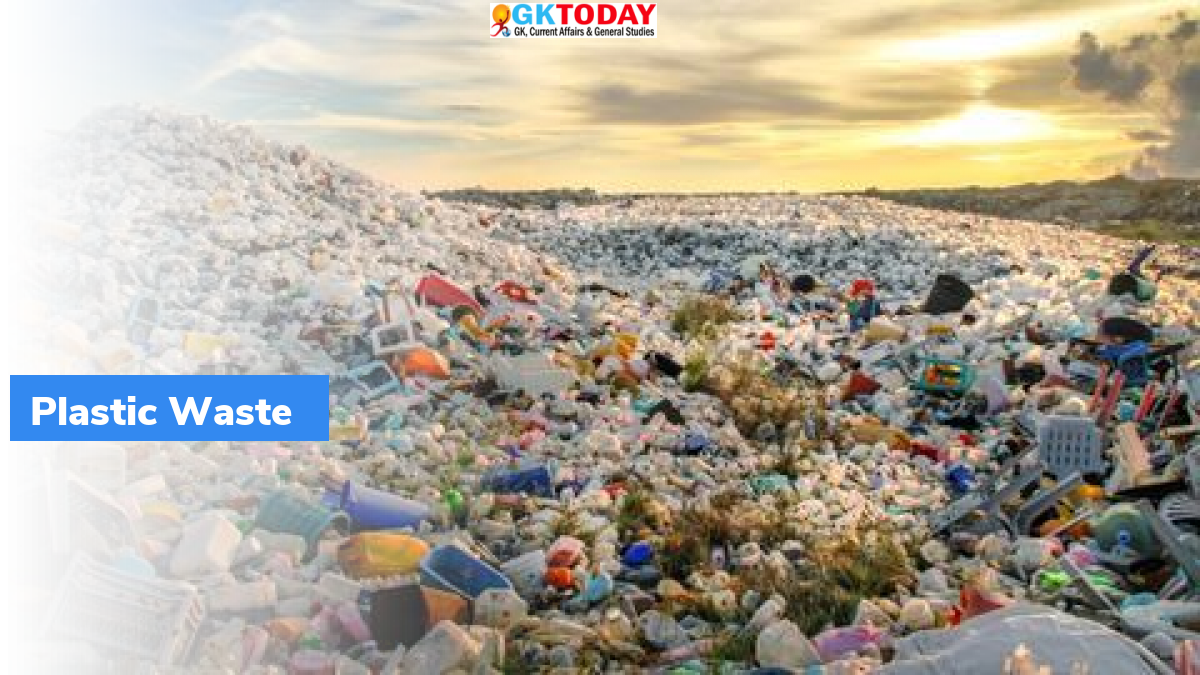Ban of Use of ‘Single-use plastic’
Union government has banned the use of ‘single-use plastic’ from July 1, 2022.
Highlights
- Gazette notification was issued by Ministry for Environment, Forest and Climate Change in 2021, and announced the ban.
- It has now defined a list of items, that will be banned from July 2022.
About single-use plastic
Single-Use plastic refers to plastic items which are used once and discarded. It makes the highest shares of plastic manufactured and used, ranging from packaging of items, to bottles, polythene bags, coffee cups, face masks, trash bags, cling film, food packaging etc.
Share of Single Use Plastic
As per 2021 report of Minderoo Foundation of Australia, single-use plastics accounts for one-third of all plastic produced worldwide, with 98% are manufactured from fossil fuels. It also accounts for majority of plastic discarded worldwide in 2019 (130 million metric tonnes). If this trajectory is followed, single-use plastic could make up 5-10 % of greenhouse gas emissions by 2050.
Single-use Plastic Waste Generation in India
As per 2021 report of Minderoo Foundation, India is featured among top 100 countries of single-use plastic waste generation. It is ranked at rank 94. The top three countries are Singapore, Australia and Oman. Domestic production in India lies at 11.8 million metric tonnes annually. Net generation of single-use plastic waste in India stands at 5.6 MMT.
Which items will be banned in India?
Central Pollution Control Board (CPCB) have announced to ban items like earbuds, candy, balloon sticks, and ice-cream sticks. Cutlery items including plates, glasses, cups, spoons, knives, forks, trays will also be banned. It has also notified to ban sweet boxes, invitation cards, cigarette packs, PVC banners under 100 microns as well as polystyrene for decoration. Polythene bags under 75 microns was already banned in September 2021. From December 2022, polythene bags under 120 microns will also be banned. These items have been banned because they are “difficult to collection” making its recycling difficult.
Month: Current Affairs - June, 2022
Category: Environment Current Affairs • Legal & Constitution Current Affairs


